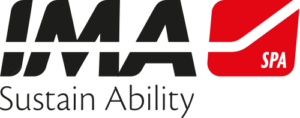
IFPAC Annual Meeting • 3-6 March 2024
IMA Active at IFPAC Annual Meeting
IMA Active is pleased to attend the IFPAC Annual Meeting, which will be held in North Bethesda, Maryland (USA), on March 3-6, 2024.
Since 1987, the IFPAC conferences have generated the enthusiastic response that resulted in the creation of a series of International meetings featuring the regulators, manufacturers, researchers and industry users. Today, IFPAC continues to set precedence as a forum for insightful discussions bringing you the latest trends and real-life applications in the fields of Quality by Design, Process Analytical Technology, Emerging Technologies, Quality Metrics, Continuous Manufacturing and Process Control applications for the pharmaceutical, biotechnology, generic, chemical, petrochemical, food, and related industries.
IFPAC is the essential meeting place for the latest developments in Process Analytical Technology, Quality by Design and overall process monitoring & control within the Pharmaceutical, Biotechnology, Food, Chemical, Petrochemical & related industries.
This annual conference will include:
- Risk-Based Lifecycle Management Protocols
- New Approaches to Drug Development
- Industry 4.0 / Pharma 4.0 / Digital Manufacturing
- Continuous Manufacturing
- Quality Risk Management
- Control Strategies and Implementation
- Automation and Software Solutions
- Process Validation
- Emerging Regulatory Expectations/Technologies/Innovative Applications
- The latest in Process Raman, Chemometrics, Advanced Separations, Mass Spec, Imaging…
Lorenzo Menarini, Process Engineer at IMA Active, will give the presentation “Orchestration system for modular CM line of solid dosage forms: Maestro”:
The move towards continuous manufacturing in pharmaceutical industry is now evident. CM potential to reduce operational costs, minimize plant footprints, increase process control, and improve product quality has been well-proven. Moreover, the regulatory agencies, FDA and EMA, have just released new guidelines, which further accelerate the adoption of CM.
The presentation focuses on the use of Maestro orchestration system while running a continuous production process for tablets. You see, in practice, how Maestro supports the control strategy and assist the operator in everyday smooth production and monitor all critical process parameters and critical quality attributes (mass flow rate, material density, compression and pre-compression forces, the content of key compounds). Maestro creates and manage single recipes for the CM line, collects and summarizes in one report all data from different unit operations including PATs sensors.
Presentation “Orchestration system for modular CM line of solid dosage forms: Maestro”
When: March 6, 2024 • 11:10 am
Speaker: Lorenzo Menarini, Process Engineer at IMA Active

Relive
Achema
The exclusive tech videos shot during Achema 2024 are now available on our dedicated website
